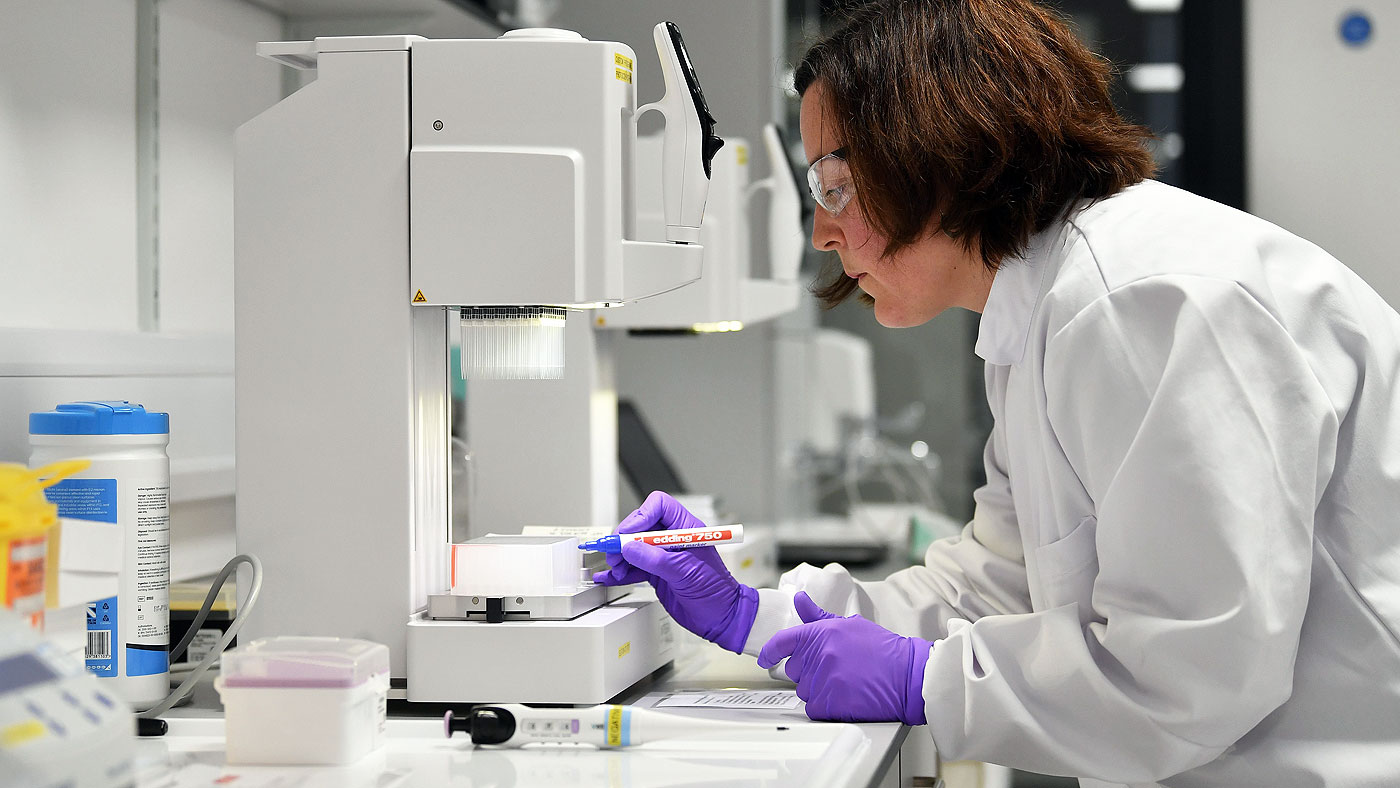How an ‘experimental arthritis drug’ could help treat Covid-19
Otilimab given to Manchester man as UK clinical trial kicks off

A free daily email with the biggest news stories of the day – and the best features from TheWeek.com
You are now subscribed
Your newsletter sign-up was successful
A new drug developed to treat rheumatoid arthritis may be given to the most seriously ill Covid-19 patients, if a clinical trial now under way in Manchester proves successful.
Farhan Hamid, 41, has become the first British coronavirus patient to receive the drug, called otilimab, as part of a study run by Manchester Royal Infirmary.
“The research aims to establish whether otilimab can treat severe lung disease developed as a result of Covid-19,” says Sky News.
The Week
Escape your echo chamber. Get the facts behind the news, plus analysis from multiple perspectives.

Sign up for The Week's Free Newsletters
From our morning news briefing to a weekly Good News Newsletter, get the best of The Week delivered directly to your inbox.
From our morning news briefing to a weekly Good News Newsletter, get the best of The Week delivered directly to your inbox.
Dr Andy Martin, who is running the trial, said Hamid, from south Manchester, had been enrolled in the study because he was experiencing severe difficulty breathing. The experimental drug could “ease the effect of coronavirus on the lungs, dampening the impact of the virus on the immune system”, Martin explained.
Funded by the drug’s manufacturer, Glaxo SmithKline (GSK), the trial has “been given urgent public health research status by the Department of Health and Social Care”, the Daily Mirror reports.
Hospitals from all over the world, including five in the UK, will eventually take part in the tests, which will involve a total of 800 patients. Trials have already begun in the US.
“Those taking part will be allocated into two groups at random, with half receiving a one-hour, single infusion of otilimab,” says the Daily Mail. The other group will get “placebo intravenous therapy, in addition to standard care”.
A free daily email with the biggest news stories of the day – and the best features from TheWeek.com
Christopher Corsico of GSK said the drug is believed to help patients who are experiencing the most severe reaction to Covid-19.
“We know that some Covid-19 patients experience an overreaction of their immune system - sometimes referred to as cytokine storm - which can lead to hospitalisation or death,” he said.
“We believe that otilimab might be able to help counter or calm this process.”
Holden Frith is The Week’s digital director. He also makes regular appearances on “The Week Unwrapped”, speaking about subjects as diverse as vaccine development and bionic bomb-sniffing locusts. He joined The Week in 2013, spending five years editing the magazine’s website. Before that, he was deputy digital editor at The Sunday Times. He has also been TheTimes.co.uk’s technology editor and the launch editor of Wired magazine’s UK website. Holden has worked in journalism for nearly two decades, having started his professional career while completing an English literature degree at Cambridge University. He followed that with a master’s degree in journalism from Northwestern University in Chicago. A keen photographer, he also writes travel features whenever he gets the chance.
-
 How the FCC’s ‘equal time’ rule works
How the FCC’s ‘equal time’ rule worksIn the Spotlight The law is at the heart of the Colbert-CBS conflict
-
 What is the endgame in the DHS shutdown?
What is the endgame in the DHS shutdown?Today’s Big Question Democrats want to rein in ICE’s immigration crackdown
-
 ‘Poor time management isn’t just an inconvenience’
‘Poor time management isn’t just an inconvenience’Instant Opinion Opinion, comment and editorials of the day
-
 A Nipah virus outbreak in India has brought back Covid-era surveillance
A Nipah virus outbreak in India has brought back Covid-era surveillanceUnder the radar The disease can spread through animals and humans
-
 A real head scratcher: how scabies returned to the UK
A real head scratcher: how scabies returned to the UKThe Explainer The ‘Victorian-era’ condition is on the rise in the UK, and experts aren’t sure why
-
 How dangerous is the ‘K’ strain super-flu?
How dangerous is the ‘K’ strain super-flu?The Explainer Surge in cases of new variant H3N2 flu in UK and around the world
-
 Covid-19 mRNA vaccines could help fight cancer
Covid-19 mRNA vaccines could help fight cancerUnder the radar They boost the immune system
-
 The ‘menopause gold rush’
The ‘menopause gold rush’Under the Radar Women vulnerable to misinformation and marketing of ‘unregulated’ products
-
 The new Stratus Covid strain – and why it’s on the rise
The new Stratus Covid strain – and why it’s on the riseThe Explainer ‘No evidence’ new variant is more dangerous or that vaccines won’t work against it, say UK health experts
-
 RFK Jr. vaccine panel advises restricting MMRV shot
RFK Jr. vaccine panel advises restricting MMRV shotSpeed Read The committee voted to restrict access to a childhood vaccine against chickenpox
-
 RFK Jr. scraps Covid shots for pregnant women, kids
RFK Jr. scraps Covid shots for pregnant women, kidsSpeed Read The Health Secretary announced a policy change without informing CDC officials